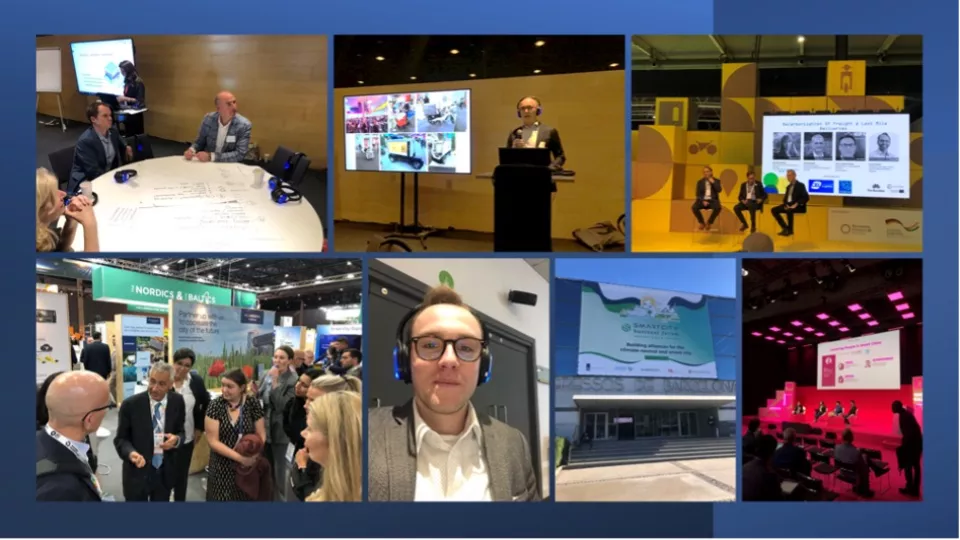The congress, a global event for smart cities, brought together business, academia, and city representatives to drive smart and sustainable development. Participants explored futuristic city aspects like smart charging, innovative mobility vehicles, sensors, digital twins, and cybersecurity. Klas Hjort and John Olsson, researchers in Packaging Logistics at LTH, attended as part of the Helsingborg city delegation to deepen their understanding of how smart technology transforms cities and benefits retail development.
Cities worldwide are adopting smart solutions, but a notable trend is the risk of these solutions operating in isolation, lacking coherent integration. Dallas, Texas, highlighted this challenge, acknowledging active efforts in implementing smart solutions but struggling to integrate them into a unified system. The city aims to build a smart convention centre to enhance integration and create a cohesive ecosystem.
During their Barcelona trip, researchers also participated in the Smart Business Forum, organized by Cleantech Scandinavia, discussing challenges and opportunities in sustainable logistics systems. Klas Hjort presented at a workshop on mobility and urban logistics, at which he shared insights from Helsingborg's ongoing projects, emphasizing the value of engaging students in such initiatives for novel perspectives. “Students approach the challenges with fresh eyes, fewer prejudices and limiting assumptions,” Klas explained.
Infrastructure is a critical factor for the smart and sustainable cities of the future, with microhubs playing a role in efficient and eco-friendly logistics. Strategic placement of microhubs in city centres can reduce the need for long-distance transport. However, discussions highlighted the importance of integrating microhubs into the larger ecosystem through collaboration between public and private sectors.
Urban mobility's impact on retail is significant, with changes in accessibility influencing retail strategies. Ikea, for example, has realised that more and more young people choose to refrain from owning a car, and is adapting its out-of-town department-store model in response. At the congress, a number of innovative urban mobility solutions were presented, such as cargo bikes, micro-vehicles, tube systems, and drones. These solutions respond to the growing demand for flexible and sustainable transport and delivery options in urban areas, prompting retail adaptations.
The Smart City Expo World Congress 2023 was inspiring, providing deeper insights into implementing technical solutions for urban development. The emphasis was on creating sustainable cities that drive retail growth while enhancing residents' quality of life. The congress underscored the crucial role of technological advances and innovative strategies in shaping future cities that are efficient, economically viable, and environmentally friendly. Collaboration between sectors remains essential to prioritize smart solutions and innovative strategies for sustainable urban development.
